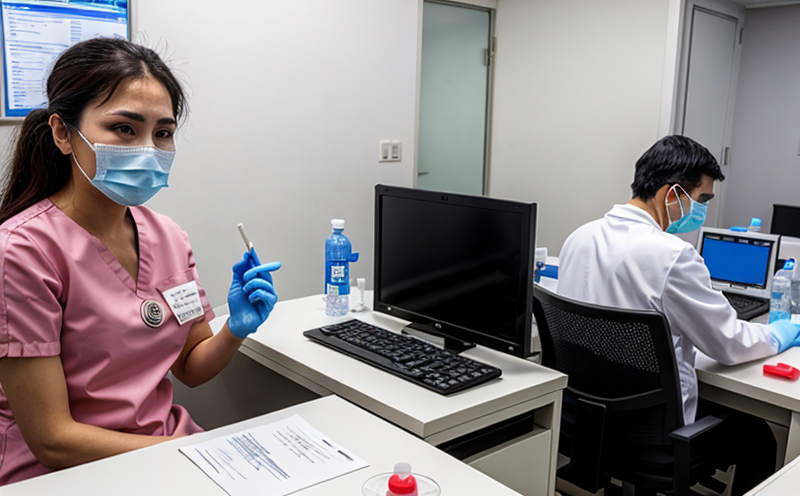Koi Herpesvirus (KHV) Detection in Ornamental Fish
The Koi Herpesvirus Disease (KHVD), caused by the Koi Herpesvirus (KHV), is a highly contagious and potentially fatal viral disease affecting common carp, koi, and other ornamental fish. The virus can spread rapidly through water and direct contact, leading to significant economic losses for aquaculture and hobbyist communities.
Early detection of KHV is critical in preventing the outbreak from spreading further within a pond or aquarium system. Our service offers comprehensive virology and serology testing to detect the presence of KHV antibodies in fish, ensuring that affected populations are identified promptly and appropriate containment measures can be implemented.
The detection process involves sampling fish for blood samples which are then analyzed using advanced molecular techniques such as PCR (Polymerase Chain Reaction). This method allows for the specific amplification of viral DNA sequences, providing a sensitive and accurate diagnosis. Additionally, we also offer serological tests that measure antibodies against KHV in fish serum.
Our laboratory uses strict protocols to ensure accurate results. Specimens are processed within hours of collection to minimize potential contamination or degradation of biological materials. Our team adheres strictly to international standards like ISO 17025 for quality management and ISO/IEC 17026 for proficiency testing.
Understanding the environmental factors that influence KHV outbreaks can help in managing these diseases more effectively. Factors such as water temperature, pH levels, stocking density, and stressors play a crucial role in determining the susceptibility of fish to this virus. Our team works closely with clients to interpret results within broader context including environmental conditions.
With our expertise in clinical & healthcare testing combined with our experience in virology & serology, we provide reliable KHV detection services tailored specifically for ornamental fish populations. By offering quick turnaround times and precise diagnostic methods, we support the health of these beloved aquatic pets while aiding conservation efforts worldwide.
Scope and Methodology
| Sample Collection | Analytical Techniques | Reporting Times | Acceptance Criteria |
|---|---|---|---|
| Blood samples collected from fish | PCR and ELISA (Enzyme-Linked Immunosorbent Assay) | Average of 48 hours | Viral DNA detected above threshold levels, positive serological test results |
| Protocol Steps | Description |
|---|---|
| Sample Reception and Processing | Specimens are received and prepared immediately for analysis. |
| Molecular Amplification | DNA from the sample is extracted and amplified using PCR technology. |
| Serological Testing | Antibodies present in fish serum are detected through ELISA methods. |
| Data Analysis | Results are analyzed to determine presence or absence of KHV. |
| Report Generation | A detailed report is generated outlining findings and recommendations. |
Eurolab Advantages
Our commitment to excellence in testing ensures that clients receive accurate, reliable results every time. Here are some key advantages of choosing Eurolab for KHV detection:
- Certified Laboratory: Our facility is ISO 17025 accredited, ensuring compliance with international quality standards.
- Experienced Technicians: Our team comprises highly skilled professionals trained in the latest diagnostic techniques.
- Prompt Turnaround Time: We prioritize quick delivery of results to help mitigate disease spread.
- Comprehensive Reporting: Detailed reports provide insights into potential risk factors and prevention strategies.
We understand the importance of this service in maintaining healthy fish populations. Our goal is not only to detect KHV but also to offer actionable recommendations based on our findings, helping clients manage their operations more effectively.
Quality and Reliability Assurance
- Standard Operating Procedures: We follow stringent SOPs which are regularly updated to incorporate new scientific knowledge.
- Proficiency Testing: Participation in external proficiency testing programs validates the accuracy of our results.
- Continuous Training: Our staff undergo continuous training to stay abreast with advancements in diagnostic technologies and methodologies.
- Digital Data Management: All data is securely stored and managed using cutting-edge software solutions.
- Sample Handling: Specimens are handled carefully from collection through final analysis to prevent contamination or degradation.
- Data Validation: Each result undergoes thorough validation checks before being reported out.





